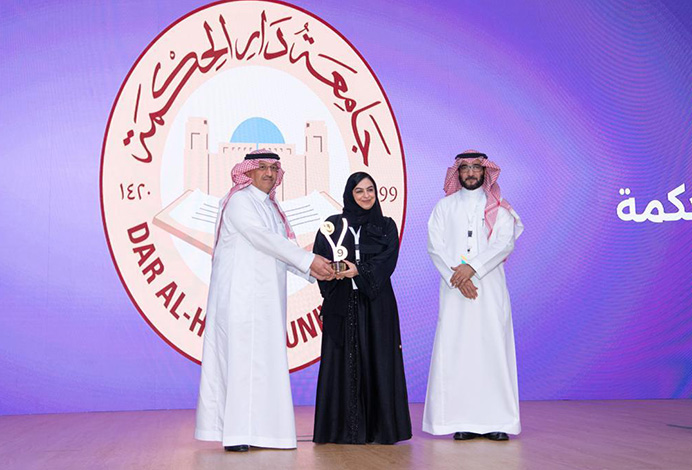The University of Dar Al-Hekma has set up a means to equip its students with the necessary skills to lead educational organizations. It also created a conducive learning environment that integrates modern technologies with the latest developments in education.
This approach aligns with Dar Al-Hekma University‘s goal of enhancing the local community and education system with great leaders, which is why it offers the Masters of Educational Leadership.
This program is the first in the Kingdom of Saudi Arabia that offers modern courses under the supervision of advanced educational leadership. It provides students with purposeful knowledge and skills, especially skills in critical, analytical, and creative thinking, problem-solving, and decision-making.
It also offers three degree tracks from which the students can choose what suits them: a master’s degree in Educational Policies and Evaluation, a master’s degree in School Leadership, and a master’s degree in Teaching and Learning.
1 – What Are the Goals of the Master’s Program in Educational Leadership?
This program aims to promote professionalism and ethical practices in educational institutions. As for community development, the master’s degree in educational leadership seeks to establish a cooperative system among other education partners while helping the graduates find solutions to relevant issues in the education field. Dar Al-Hekma University also provides modern methods in educational leadership practices and the learning process, in addition to a huge database to enrich scientific research.
One of the most important matters related to educational leadership is strengthening the educational assessment and evaluation processes, which is what this program works towards.
2 – Why Dar Al-Hekma University?
The Master of Educational Leadership at Dar Al-Hekma is considered the first of its kind in Saudi Arabia, in addition to being the first to offer new tracks that are in line with the Kingdom’s progress to achieve its Vision.
The study plan for this program is also characterized by its balance of practical and theoretical aspects, in addition to its comprehensiveness, depth, and focus on all components of educational institutions to develop and strengthen them.
As for the educational environment, Dar Al-Hekma University is keen to provide a purposeful environment based on enhancing creativity and critical thinking and meeting the student’s needs and ambitions.
3 – What Skills and Values Will the Graduates Gain?
Upon graduation, the alumni will possess the skills to create academic and professional programs that keep up with the latest advancements in the educational sector. They will also be able to design effective strategies that better understand the goals and vision of the educational institution they are working at.
When it comes to technical skills, the graduate will be able to use a variety of advanced digital technology to develop practices related to educational leadership, as well as apply scientific research techniques and analytical thinking skills in decision-making based on related data.
Regarding values, the graduate will possess the ability to present creative initiatives to the issues proposed to them, achieving responsible citizenship and encouraging their spirits of continuous learning.
4 – What Are the Career Prospects After Graduation?
The program provides students with the necessary skills that qualify them for numerous career paths, including:
- A teacher in schools.
- A faculty member or administrator in institutes and colleges.
- Quality manager in educational institutions, assessment and evaluation organizations, and at the Ministry of Education.
- An educational entrepreneur capable of presenting educational initiatives and leading organizations to achieve their goals.
- An educational supervisor in private schools.
- An educational supervisor in related departments in the Ministry of Education.
- A director of educational development projects in civil, international, and community institutions and organizations.
- An educational leader for schools and learning centers.
- An administrative leader of community centers and institutions.
- A specialist in the field of planning and development for educational institutions and centers.
